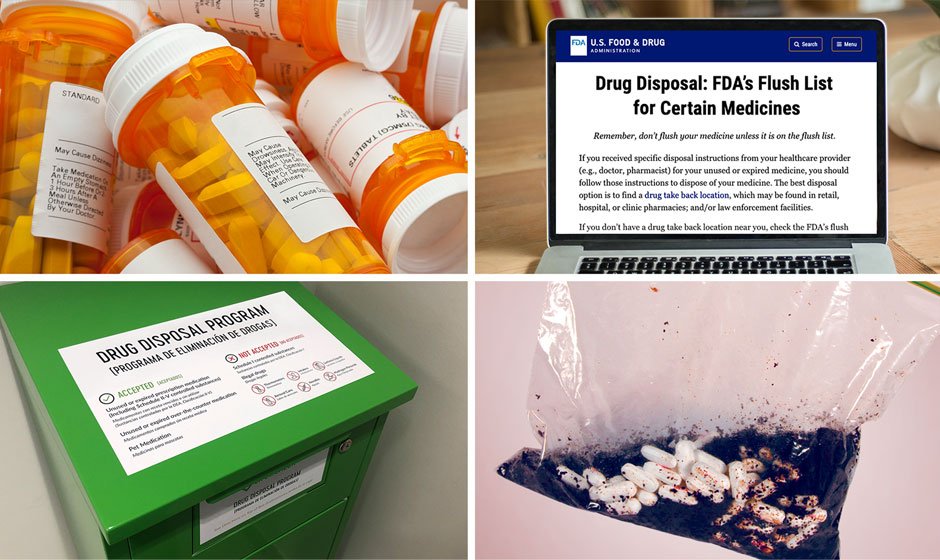How Do You Dispose Of Pharmaceutical Waste? An Industry Guide

Do you ever wonder what happens to all the leftover prescription and expired drugs? How do you dispose of pharmaceutical waste after production?
Proper disposal of pharmaceutical waste is crucial for the environment and public safety. This article will explore the various methods and guidelines for disposing of pharmaceutical waste, whether you are a healthcare professional or a consumer.
When it comes to pharmaceutical waste, understanding its impact is key. Improper disposal can lead to contamination of water sources, soil pollution, and even harm to wildlife. That’s why regulatory guidelines and waste disposal professionals are recommended to ensure safe disposal practices.
As a healthcare professional or a consumer, you must be aware of these guidelines and follow them diligently. By doing so, you play an active role in protecting both human health and the environment from the potential hazards that pharmaceutical waste can pose.
So, let’s dive into the proper disposal methods available to you!
#1 Understanding the Impact of Pharmaceutical Waste
You need to understand the impact of pharmaceutical waste and how it affects the environment and human health.
When pharmaceutical waste is not disposed of properly, it can contaminate water sources, soil, and air, leading to serious environmental consequences. The chemicals in these waste products can disrupt ecosystems and harm aquatic life.
Additionally, improper medication disposal can result in accidental ingestion by humans or animals, leading to adverse health effects.
Educating yourself about the proper disposal methods for pharmaceutical waste to minimise its negative impact on the environment and human health is crucial.
#2 Regulatory Guidelines for Pharmaceutical Waste Disposal
Follow the regulatory guidelines to handle and eliminate pharmaceutical waste properly, ensuring compliance with safety protocols.
Here are four reasons why it’s crucial to adhere to these guidelines:
- Protecting the environment: By following the regulations, you can prevent pharmaceutical waste from contaminating water bodies, soil, and air. This helps preserve ecosystems and safeguard the health of plants and animals.
- Ensuring public safety: Proper pharmaceutical waste disposal reduces the risk of accidental exposure or ingestion by individuals who may come into contact with it. It minimises the chances of adverse effects on human health, such as allergic reactions or toxicity.
- Preventing drug misuse: Disposing of pharmaceutical waste by regulations helps prevent unauthorised individuals from accessing expired or unused medications. This lowers the risk of drug abuse, diversion, and addiction.
- Promoting ethical responsibility: Following regulatory guidelines demonstrates a commitment to ethical practices within the healthcare industry. It shows that you prioritise patient safety, environmental stewardship, and responsible use of medication resources.
Following regulations help protect your company’s image and protect the public around you from harm.
#3 Proper Disposal Methods for Healthcare Professionals
By adhering to proper disposal methods, healthcare professionals can effectively eliminate potential harm from pharmaceutical waste.
One of the most common methods used is segregation, which involves separating different types of waste before disposing of them. This ensures that hazardous pharmaceuticals are not mixed with non-hazardous materials, reducing the risk of contamination and exposure.
Additionally, healthcare professionals should follow specific guidelines provided by regulatory agencies regarding pharmaceutical waste disposal. These guidelines may include instructions on packaging, labelling, and storing pharmaceutical waste before disposal. Healthcare professionals should also be aware of local or state regulations that may apply to their area.
By following these proper disposal methods, healthcare professionals can play a crucial role in protecting public health and safeguarding the environment from the potential dangers associated with pharmaceutical waste.
If you need help with what to do with your waste, contact a professional removal service. Professional waste disposal companies can dispose of your pharmaceutical waste responsibly using specialised equipment.
#4 Safe Disposal Options for Consumers
Choose the most suitable method to safely dispose of unused medications and protect yourself and the environment. When it comes to getting rid of pharmaceutical waste as a consumer, several safe disposal options are available.
The first option is to check if your local pharmacy or healthcare facility has a take-back program where you can return unused medications for proper disposal.
You can also dispose of certain medications at home by following specific guidelines. This includes mixing them with an undesirable substance like coffee grounds or kitty litter in a sealed bag before throwing them in the trash.
It’s crucial only to flush medications down the toilet or sink if explicitly instructed on the packaging, as this can contaminate water sources and harm aquatic life.
Responsible disposal of pharmaceutical waste is essential for protecting your health and the environment.
#5 Managing Pharmaceutical Waste in Facilities
Managing pharmaceutical waste in facilities is crucial for ensuring the safety of both employees and the environment. When it comes to disposing of pharmaceutical waste, a few key steps should be followed.
First, it’s important to segregate different types of waste to prevent cross-contamination. This can be done using separate bins or containers for different categories, such as hazardous, non-hazardous, and sharps.
Next, proper labelling is essential to identify the contents of each container and ensure that they’re handled correctly.
Also, facilities should have clear protocols for storing and transporting pharmaceutical waste safely. This may include using secure storage areas with restricted access and following specific guidelines for transportation methods.
Lastly, working with a reputable waste management company specialising in handling pharmaceutical waste is important. They can guide compliant disposal methods and ensure all regulations are met.
By implementing these practices, facilities can effectively manage pharmaceutical waste and minimise potential risks associated with improper disposal.
So, How Do You Dispose Of Pharmaceutical Waste?
In conclusion, understanding pharmaceutical waste’s impact is crucial for healthcare professionals and consumers. Regulatory guidelines provide clear instructions on properly disposing of pharmaceutical waste, ensuring the safety of individuals and the environment.
To ensure effective disposal, healthcare professionals have specific methods to follow, such as segregation and proper labelling. Consumers also have safe disposal options, such as returning unused medications to pharmacies or participating in drug take-back programs.
Efficient pharmaceutical waste management in facilities is necessary to prevent contamination and minimise environmental harm. Healthcare facilities must implement comprehensive waste management plans, including proper storage, transportation, and disposal procedures.
By following these guidelines and utilising safe disposal options, healthcare professionals and consumers can contribute towards reducing the negative impacts of pharmaceutical waste.



